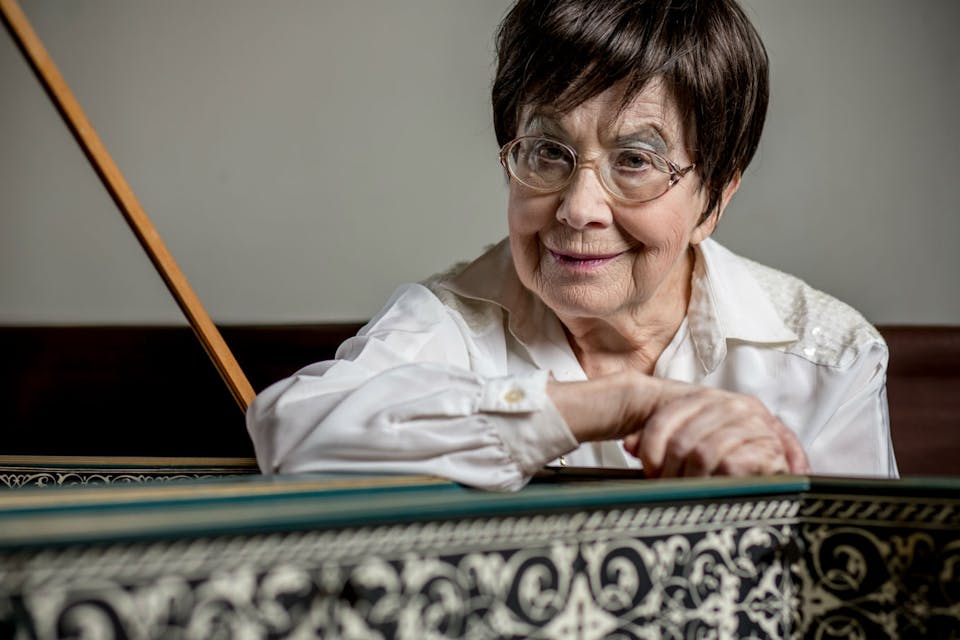
November 9, 2017
Remembering the Great Czech Jewish Harpsichordist Zuzana Růžičková
Růžičková, who died in September, survived both Hitler and Stalin to become a brilliant interpreter of J.S. Bach—and the only person to commit his entire keyboard oeuvre to disc.
I was loaded on a wagon. My mother was left behind. A gust of wind came and took this piece of paper from my hand. And my mother, who knew how much it meant to me, started to run after this piece of paper and the other girls took her hand and pulled her up into the wagon where I was.
The words are those of the great Czech Jewish harpsichordist Zuzana Růžičková, who died on September 27 at the age of ninety. The episode recounted here is one among many riveting moments in a recently released documentary film, Zuzana: Music is Life. Hers was an adolescence and young adulthood that encompassed the full horror of the Holocaust, followed in turn by the brutal oppression of Soviet Communism, followed in the inspiring fullness of time by personal and musical vindication hard won and thrillingly deserved.
And the “piece of paper” that was so precious to her? It was a fragment of the Sarabande in E Flat Minor from the English Suites of Johann Sebastian Bach. The teenage piano student had kept it close during her internment at Theresienstadt, where her father had died of typhus. The wagon onto which her mother was hauled and thereby reunited with her daughter was carrying its transport in the direction of Auschwitz.